
This review may contain spoilers
Set in the early 1900's, The Bloody Fists starred Chen Sing and Chen Kuan Tai. Yuen Woo Ping choreographed the fights which meant at least they would be interesting. It was a good thing, because the story wasn't.With a plague descending upon the country the invading Japanese wanted the precious dragon herb grown locally for their own people and to let the Chinese suffer the devastating effects of the illness without their remedy. The villagers in charge of farming and storing it refuse to sell it to the Japanese. A mask wearing Chen Kuan Tai in a terrible wig brings his men to intimidate the village into handing over the dragon herb. Three brothers manage to hold his men off initially. In a kung fu film if there are three brothers, two of them are extraneous and most likely won't see the ending credits. Along with the Yu brothers, Jiang Wu Ke, a notorious robber wanted by the law shows up in town while he's on the run. He falls ill with the plague and is treated with the dragon herb by a mute and his grandfather. By the time he recovers the villagers are either dead or being held hostage by the Japanese. The bad guys didn't quite grasp the whole hostage concept as they kept killing them off or killing the people who knew where the herb was hidden. Offended by the bad guys' violence Jiang decides to take matters into his own hands.
Chen Sing played the good guy in this movie, going against his usual villain type. He did make for a more complex hero than the bland Yu brothers. Chen Kuan Tai didn't come across as a very sinister baddie, but it could have been due to the hilarious wig he was sporting. Evil sidekick San Kaui had owl-like eyebrows while Pak Sha Lik looked like his mustache was made out of electrical tape. Mama Hung and Hao Li Jen who had nearly 600 acting credits between them made their usual supporting appearances.
The story's simple plot coupled with terrible pacing caused the movie to drag terribly. The sets weren't special and the Chinese costumes were standard for kung fu movies regardless of the era they were supposed to take place in. The Japanese costumes were as bad as Kuan Tai's wig. There was an awful rape scene that was gratuitous and completely unnecessary which downgraded the movie for me. Yuen Woo Ping's fight choreography wasn't as polished as it would become but it was entertaining, especially the final fights by the ocean beach. Chen Sing and Chen Kuan Tai had enough charisma to sell it. There was one fight in the dark that was almost impossible to make out much of the action. Trampolines and sped up camera work were both employed throughout.
As bland as the story and characters were, I did enjoy seeing Chen Sing play the good guy. He made his character compelling to watch, a rare feat next to the lackluster cast. The Bloody Fists wasn't an awful 1970's kung fu film, but it wasn't bloody marvelous either.
9/10/23
Was this review helpful to you?
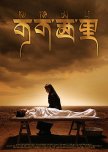
This review may contain spoilers
Sometimes brave people can bring about change
As the Tibetan antelope numbers rapidly decreased from one million to around 10,000 in the 1990's, men from the Kekexili area formed the Mountain Patrol to deter poachers from the area. Based on a true story, in the nearly lawless, desolate land the patrol had no one to rely on but themselves. Outmanned and outgunned by the ruthless poachers they would have to be resolute in their convictions in the unforgiving terrain to save the endangered animals…and themselves.A Beijing journalist with a Tibetan father, Gu Ya, succeeds in imbedding himself with the Mountain Patrol. Their leader, battle hardened Ri Tae, accepts him with the hope a story could bring more help to their cause. The patrol is mourning the loss of one of their own who was murdered recently by the poachers. Gu Ya scarcely has time to unpack his bag before the men head out on patrol to track down the murderers. Along the way they cover barren desert and forbidding mountains. Gu Ya discovers how harshly they interrogate witnesses and suspects, especially after they come across nearly 500 hundred dead and peltless antelope. The patrol reverently stacks the carcasses and burns them with a funeral rite. The small band of men have to resort to selling the pelts they discover to pay for medical care and supplies.
The patrol was decimated by illness and death. The earth reminded them that despite their noble cause, they were vulnerable in spaces without food and water, where snowstorms could erupt in a moment, and quicksand could swallow a man in a matter of seconds. The desert and blizzard winds mercilessly erased all traces that a person had ever been there. Ri Tae was a man possessed with catching the murdering poachers which endangered not only himself but also his men as they ran low on food and fuel. Tibetan actor Duo Bu Jie was perfect as the patrol leader who was relentless in his pursuit of his enemy and also loved his men and the land.
Mountain Patrol could be disturbing with scenes of animals being butchered with numerous carcasses and bullet ridden pelts. Yet it also featured beautiful and stark landscapes. Director Lu Chuan filmed on location where the events were said to have happened in a land so remote a person's steps could be the first footsteps there since the dawn of time. The soundtrack was emotionally haunting, perfectly accenting a scene without intruding. The story was gut wrenching as the men with "dirty hands and pure hearts" suffered devastating losses. Yet their losses for a cause they believed in did bring about change. After their stories became published the government designated the land a natural preserve and the antelope population has steadily increased. Lu Chuan never fully answered what compelled these men to risk their lives in service to the graceful animals, but the world is a slightly better place because they did.
9/1/23
Was this review helpful to you?
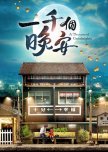
This review may contain spoilers
"Beauty co-exists with its wounds"
If a person wrote a love letter to Taiwan extolling its people, land, food, and history it might look like A Thousand Goodnights. An adopted daughter sought to finish her father's rail trip of exploration and found an unfinished story needing reconciliation. Later in the drama the journey diverted off the main itinerary into melodramatic territory stranding passengers hoping for more scenic destinations yet still continued the search for meaning between generations and what constituted home.Kindly Station Master Tai Chia He took an abandoned little girl, Tai Tien Ching, home and raised her as his own along with his daughter, Tai Tien Yu. On the day of his retirement, Cheng No, a young man he had corresponded with through the years returned to Taiwan. Chia He set out the next day on his long awaited rail journey complete with itinerary in hand. When Chia He unexpectedly died Tien Ching and Cheng No decided to finish his trip for him. Along the way they discovered relationships that needed healing-a first love, a birding club, an old friend's birthday party gathering, and a child who needed a family and desired to be a station master.
New friends were made and new family members discovered and romance blossomed along the way. The drama dealt with healing the sins of the past and the problems of the present. It covered a multitude of issues-infidelity, lost parents, dementia, plagiarism, gambling and the trials of becoming an idol. The older generation learned from the younger generation as the younger generation learned from the older generation.
I loved seeing the beauty of Taiwan and learning about some of its history. The rail travels were my favorite part. The healing message and reconciliations were heartwarming if a little too simple. As one character said, "I really miss those days when we traveled together." Me, too, buddy. The story lost some of its magic when it veered off course.
The biggest problem I had was the female lead, Tien Ching. As one character asked her, "Were you born to be exploited?" She was terribly bland and being an artist could not be used as a substitute for actual interesting characteristics. She mumbled quite often and had trouble standing up for herself which led to people taking advantage of her. The actress who played her was limited to pursing her lips and darting her eyes around to convey emotion. Her every movement looked staged and awkward and very rigid in comparison to some of the more natural performances around her.
Overall, A Thousand Goodnights conveyed the value of handing down our stories from generation to generation as well as expanding the friendships to the next generation. Most family and friendship problems were handled respectfully and with compassion. The characters also found the value in home and family and not letting past family heartaches determine how they would treat each other in the present. This charming drama showed not only the beauty of Taiwan and her people, but also how we are all tied to the earth and to each other.
5/31/23
Was this review helpful to you?
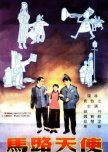
This review may contain spoilers
"Who doesn't treasure life?"
Street Angel followed a group of low-income workers who forged bonds of love and friendship as they dealt with the hardships thrust upon them in an uncaring city of have and have-nots. Music, magic tricks, humor, and true love lightened the mood of a melodramatic story.Xiao Hong and her sister Xiao Yun fled the Japanese and ended up in Shanghai working in a tea house. Xiao Hong sings for the customers while the owner put her older sister to work as a prostitute. Hong flirts with the trumpet player, Xiao Chen, who lives across the street with his friends. Their flirtation turns to love and all seems well until Hong discovers her new guardians intend to sell her to a wealthy street gangster. Chen and his friend Wang, visit a lawyer with an office high in a skyscraper only to discover that justice is out reach for the poor. C buddies The buddies spirit Hong away and the two lovers marry. Yun finds her sister and for a time it looks like the sisters may have a happy life. Sadly, the melodramatic aspect of this film could not be outrun as the economy worsens and rent prices increase, even worse, the tea house owner and the gangster are hot on their trail.
Music dominated much of the film. Zhou Xuan sang several lovely songs and enthusiastic trumpet music also livened the story's setting. Chen entertained Hong and his friends with numerous magic tricks to keep everyone's spirits up when money was tight. Zhou Xuan and Zhao Dan played their roles exuberantly and earnestly as the lovers went from frolicking to despair.
The quality of the filming was difficult to tell as the film I watched in the public domain had not been restored and could be quite blurry at times. Even at that, I could tell it was well framed and shot. This was one of the earliest Chinese films to use sound and they made the most of it with the background music and musical numbers.
Street Angel worked in humor that bordered on slapstick without going overboard. The love story felt authentic, even the second love story felt earned. The bright loving, parade-like atmosphere crashed into reality by the end of the film when the characters faced the harsh truth of their lives and limits of their power. Those who lived high above them had access to justice and medical care while they struggled to keep a roof over their heads and a smile on their faces. "Who doesn't treasure life?" Treasure life they might, but the poor toiled in a system that would swallow them whole if they weren't lucky. This plucky group of friends were a delight to watch as they held each other up and held on tight, even when it seemed their luck had ran out.
8/29/23
Was this review helpful to you?

This review may contain spoilers
Wong Fei Hung once again fights opium dealers, this time in Heroes of Heroes, with a little help from Beggar So. An evil opium smoking and opium dealing prince found himself overextended when he managed to make enemies of both men even with the vicious Red Lotus gang backing him up.Special Commissioner Lin asks for Wong Fei Hung's help in cleaning up the city when the Emperor declares an opium ban. So Chai from the wealthy So family is bamboozled by Prince Barac into siding with him on the opium issue. The Prince is not only addicted to opium but stands to lose a fortune if its banned. When the prince hooks the young So on opium, Wong Fei Hung steps in to rescue the promising fighter. The two kung fu legends will have to work together to bring down the prince and free the city from the grip of opium addiction and dealers.
The first fifty minutes of this film were narratively scattered and filled with slapstick comedy. I found it tedious and underwhelming. When the secondary characters stopped hogging the limelight and So and WFH stepped up with their fists and kicks in the second half the movie turned for the better.
Wang Jue made for a very bland Wong Fei Hung. Donnie Yen was much more interesting as the young Beggar So discovering his destiny. Hung Yan Yan/Xiong XinXin succeeded in making the sinister Prince someone who was difficult to defeat. Fennie Yuen started out as the intrepid princess reporter with her camera, but quickly became a damsel in distress. Ng Man Tat and Sheila Chan were mainly used as comic relief, really bad comic relief.
The fights, especially in the second half were entertaining. There was a lot of wire-work and sped up camera action, but also some nice hand and foot work. Donnie was young, fast, and limber. I always enjoy watching him fight. The Yuen clan choreographed interesting fights using weapons, scenery, tiger, crane, and drunken fist styles of kung fu.
If you love 1990's slapstick comedy complete with goofy prosthetic teeth, you're in for a treat. If you're like me and just don't get it, but do enjoy old kung fu movies, be patient and wait until around the 50-minute mark and the fun will begin.
8/27/23
Was this review helpful to you?

The Blob moved quicker than this slow paced movie
H-Man, in this case H-Men, was another film cautioning against the use of atomic weapons. Similar to The Blob, slow moving ooey-gooey creatures that can also glow green dissolve anyone in their path.
The film begins with a drug heist gone wrong when the chief gangster disappears leaving his clothes behind. Enter an earnest young scientist who tries to convince the police that the gangster didn't run away---he was dissolved. The police refuse to believe him and concentrate on tailing the gangster's lover who is a singer in a club. After the dissolved bodies start puddling all over town, they realize they are dealing with the consequences of radioactive experiments.
The sci-fi part of the movie was well done for a story about giant molasses-moving blobs of radioactive goo that dissolve people but not their clothes. The tedious gangster part of the film about finding a block of missing heroin slowed the movie down making the blobs seem quick in comparison. As with some Godzilla movies, the monstrous blobs had most of their screen time in the last segment of the movie leaving the rest to the boring humans.
I enjoy a good creature feature, but the movie needs to feature the creature and not women in skimpy outfits singing in a club or cardboard characters wandering around aimlessly looking for gangsters or puddles of goo. Green Glowing Blobby-7.5/10 Bland Gangster Noir-4/10
8/24/23
Was this review helpful to you?

This review may contain spoilers
Until death do us part...
This drama special had the potential to be a satisfying romance and murder mystery. There wasn't just one secret, there were several. A construction worker paid for a wife from Vietnam, but his own insecurities created problems that turned deadly.Mail order bride stories tend to be problematic in real life. They are often rife with scams and human trafficking issues. In this story, a rough construction worker buys a Vietnamese wife. He has little trust in her and hides her foreign registration card and passport. She diligently works taking care of his shoddy home, assisting his invalid mother, learning Korean, and eventually finding jobs to help support their little family. He drinks at night, falls asleep, and goes to work, leaving little time for conversation. Eventually, they have a child together. Despite her loyalty he refuses to help her gain Korean citizenship, fearing that she will leave. She patiently hopes that one day he will see the love she has for him. The special opens with her being interrogated by the police for his brutal murder, so spoiler alert, there's not a happy ending for this couple.
This drama special had great potential but the writers decided to sabotage the relationship, not with a secret but with physical abuse. On separate occasions he hit her in public repeatedly. If she killed him, I was ready to be a witness for the defense. She constantly displayed saintly long suffering with his silences, distrust, jealousy, and physical abuse. Nothing she did seemed to penetrate his insecurities. He may have shown kindness towards her a few times, but I can't get past him hitting her and leaving her vulnerable without her foreign registration card. At first, he may have been cautious with a stranger in his house but some of his actions could be perceived as him treating her as less than because she was foreign or even worse because she was a commodity he had paid for. Because he refused to communicate with her and treat her as a real wife, he set up the dominoes to be knocked over leading to his death and financial ruin. Secret had many secrets but the biggest was why the writers thought an abusive male lead was ever going to be seen as sympathetic.
8/21/23
Was this review helpful to you?

This review may contain spoilers
"We know it's wrong, but preaching won't help"
Women of the Night was a brutal look at women without a support system who were left to fend for themselves on the streets during post WWII Japan. Sisters Fusako and Natsuko took different roads, but both ended up at the same destination—prostituting themselves to survive. Once again, Mizoguchi showed the devastating affects of war and poverty on women, this time taking on topics that were often taboo.Mizoguchi spared no one in this melodramatic look at the plight of women in the chaotic years after the war. A husband died, two children died, parents died, dying of malnutrition was a real fear, two sisters slept with the same man, opium was on the scene, STDs were dealt with, two characters were raped, gangs preyed on the weak, abortion was discussed, and pregnancy affected a main character. While life on the streets could be rough and deadly, Mizoguchi veered from informative into an area that felt exploitive.
Aside from desperation, the film was filled with anger, deep seething anger. Rage-filled Fusako hoped to infect as many men as she could. Natsuko only saw men as a way to make money, even willing to betray her sister to find a patron. The prostitution gangs fiercely guarded their territory, viciously attacking any woman who wandered their way or sought to turn straight. Men patrolled the streets looking for easy marks to rob and rape, further exasperating the predicament of young women on their own. Once "defiled" the girls often felt they had nowhere to turn but to prostitution.
Fusako had resisted turning to prostitution until the betrayal, which felt like an insincere reason for abandoning hope, and immediately diving into the world of street walking. By the end of the film, she made a 180 in the shadow of the Madonna in a bombed-out church that looked like a cemetery. It brought to mind the old Madonna (virgin) or whore definitions for women. She decided that she would work on behalf of all women for a world where their virtue could be protected. After being shown the dire straits women without family or fortune faced it felt insincere and an excuse for a hopeful ending. When the Purity Association had preached chastity at a women's clinic, the prostitutes jeered that they weren't turning tricks for fun and who would feed them if they quit? Would jobs suddenly be available and polite society accept them? Would men no longer take advantage of them? At one point there were 70,000 officially recognized prostitutes, not counting those who worked the streets. Mizoguchi repeatedly heaped humiliating trials and tribulations upon the female characters in this film and seemed to leave them with the false hope that simply walking away would provide them with food and shelter and a society that might come to accept them and be a safe place for women. After all the fury, degradation, and sorrow, the film's ending felt trite and unearned.
8/21/23
Was this review helpful to you?
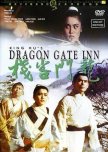
This review may contain spoilers
"If you keep disturbing me, you'll get me angry"
King Hu's Dragon Inn was one of the bar setting martial arts films in the 1960's. Set in Taiwan, King made full use of the stunning scenery, capturing it lovingly on film. Polly Shang Kuan Ling Feng, Shih Chun, Miao Tian, Tsao Chien and Hsieh Han shone as the primary participants in the battle at the inn on the edge of civilization.It was the time in martial arts lore when the ruthless Eunuch Tsao Shao Chin was massing wealth and power and crushing his enemies. He had loyal and ethical defense minister Yu beheaded and exiled his family to the outpost at Dragon Gate Inn. And because he was the bad guy he sent members from the East Agency to murder the children. The first attempt failed because Hsieh Han, in a rare good guy role, stepped in with his sword and protected the small entourage. Tsao sent Pi Shao Tung (Miao Tian) and nearly 30 men to intercept the surviving Yu family at the Inn.
The Inn is where the action truly begins and rarely slows down. Shih Chun's Hsiao Shao Tzu arrives after Pi and his men settled into the inn. Ostensibly he was there to see his old friend Wu Ning, the owner of the Inn and General Yu's former lieutenant. Pi's men attempt to take Hsiao out which results in several dead agents and a tenuous détente. Hsieh Han and Polly make their way to the crowded Inn forcefully insisting on accommodations. They also have to demonstrate that they are not to be trifled with. When finally the Yu children appear the sword-fights begin in earnest and the arrows start flying. Not to be left out, the deadly Eunuch Tsao makes a grand entrance with more men.
Dragon Inn kept the story straightforward, no secret lists, no secret kung fu books, or double-double crosses, just the goal of wiping out a good man's family and the loyal subjects who stood up for what was right. King would make the iconic A Touch of Zen in 1971 which had a richer story, Dragon Inn let its swords do the talking for the most part. Swordsman Hsiao injected humor into the lethal fights with Tsao, mercilessly taunting a man who was not used to being disrespected. Due to the large cast and near constant action, character growth was given short shrift.
Polly often played a hot-headed swordswoman, this time she was the cooler, faster blade and her brother played by Hsieh Han was the volatile stab first ask questions later swordsman. With a dancer's agility she moved quickly and gracefully. Shih Chun came across rather stilted to me, though he performed well in the fights. Miao Tian was a charismatic and daunting bad guy, I really enjoyed his performance in this film. As evil eunuchs often were, Pai Ying's Tsao was over the top---an asthmatic, blond-haired master of kung fu and sword fighting he made for quite the spectacle. Hsu Feng, who would later star in A Touch of Zen played the bit part of the young daughter on the run in this film.
The fights were more operatic than realistic, but not of the poorly done swipe and die choreography used in some films. Han Ying Chieh was the martial arts director and an imposing Lieutenant for the East Agency. There was judicious use of trampolines and wire work and on a couple of occasions sped up camera work. The fight at the inn introducing Hsiao made creative use of every day items. Instead of being relegated to the background, Polly was allowed to fiercely fight Tsao, Pi, and Ying Chieh's Lt. The final gruesome fight was well coordinated and showed how determined and unafraid of death each combatant was. Unlike some of the cheaper Taiwanese martial arts films that were grainy and shot amongst the trees, King made grand use of the scenery as backdrops for the bloody clashes. The desolate, rocky desert and lush forested mountains often stole the scenes as the battles played out in nature.
Dragon Inn was a child of the 60's and reflected the acting and fight choreography of the era. When comparing it to other martial arts films of the time it displayed a greater elegance and cohesiveness. Not a perfect film, but for old martial arts movie fans, certainly an entertaining one.
8/16/23
Was this review helpful to you?

This review may contain spoilers
"If we can't live together, we'll die alone!"
Pending Train was an entertaining story about strangers on a train mysteriously landing in a dystopian future. The strength of the drama was the characters and how they learned to work together through their fears and problems in order to survive.Mild spoilers:
From the first, "Guys, where are we?" it began to feel like the writers had recently watched Lost (2004) and wanted to update the story for Japan. Shirahama Yuto (Jack) was a fire fighter with a painful past experience at work that has left him with deep seated guilt and a need to save everyone. Kayashima Naoya (Sawyer) was a hair stylist who due to his painful past trusted no one. Hatano Sae (too bland to be any character from Lost) was a school gym teacher who thought no one liked or respected her at work who was part of a weak sauce love triangle. The rest of the main cast contained a businessman who took a walk on the wild side (Locke), an effervescent game designer (Hurley), a graduate biology student who had a physics professor for some reason, a shady self-centered manicurist, and a middle-aged CEO who worried that she didn't spend enough time with her daughter.
As with Lost it turned out there were Others on the island who would compete for resources and survival. The battles were not nearly as deadly or mysterious. I have to say there were several characters who had me wishing a Smoke Monster would come and drag them away. At one point I honestly thought earnest Shirahama was going to quote Jack and say, "If we can't live together, we'll die alone," and he did more or less. Hatano was so uninspiring that her flashback story centered on her looking at a rainbow. She was everyone's cheerleader with either a smile on her face or a look that said, "where did I leave my purse?" None of the women had particularly interesting backstories or compelling stories in the future.
Despite the Lost coincidences and poor writing for the female characters, I did enjoy this drama. Kayashima showed the kind of character growth that makes dramas worthwhile. Shirahama worked through his guilt with the help of his new friends. The struggle to figure out where/when they were, and how to obtain food and water was interesting. The bromance that developed between Shirahama and Kayashima was the most engaging relationship.
The scenery varied with one side of the tunnel displaying Tokyo's ruins covered in an almost rainforest. And on the other side of the tunnel (always a tunnel in these pesky time-traveling dramas!) was a barren landscape. The latter setting appeared to be the one Kurosawa Akira used in his film Dreams for a post-apocalyptic future. The OST had a tendency to err on the overwrought side, not always meshing with a scene's mood.
The biggest problem I had with the drama was their "science" which would have been convoluted for an old Godzilla film and only coming in second to the Professor making phones out of coconuts on Gilligan’s Island ( yes my pop culture references are old ^^). And it was hard to get on board with people starting a fire with a green stick on a green leaf. The last two episodes dragged and didn't make a lot of sense with what had gone on in previous eps. To make matters more complicated the drama seemed to give an alternate ending unless they threw their own pseudo-science out the window.
Some people wanted to go home, desperate to see their loved ones while others had nothing to return to and were happy in their made kingdom. Many of the characters decided after learning how to survive in a hostile environment, the problems at home would be easier to deal with and they also would show appreciation for each day and those they cared about. "We have the power to recover from all kinds of obstacles and failures." Yet life is funny and people can be cruel and ignorant in the face of the unknown. I'm sure there were more than a few characters who would like to have said, "We have to get back to the island!" or at least "When's the next train to the future leaving?"
Pending Train came across more as a healing drama for damaged people than "it's the end of the world as we know it." If you enjoy a more character driven drama, don't mind a lack of dire consequences in your dystopian stories, and can overlook the terrible science, this drama can be a fun watch.
8/12/23
Was this review helpful to you?

Drama Special Season 5: The Tale of the Bookworm
3 people found this review helpful
This review may contain spoilers
"Don't avoid the truth!"
The Tale of the Bookworm is a drama special book lovers can appreciate. In a little over one hour, it covered as much story ground as most dramas cover in 16 bloated episodes. The only copy of Heo Gyun's book "The Tale of Hong Gildong" aka "The Biography of Hong Gildong" has been stolen and an awkward bookworm must use what he's learned from reading to solve the case. The drama incorporates the usual political intrigue, a loyal bookpig, a hint of romance, a bromance, self-sacrifice, a bookwolf, and the determined bookworm who is willing to risk his life to find the missing treasure.Low born bookworm Jang Suh Wan is accused of a murder that occurred at the same time as the theft of Heo's book where Jang regularly "borrows" books to copy. He and Capt. Lee are charged by the sinister Minister Lee with finding the radical book or face the consequences. Along the way, Jang meets a book loving concubine and a book obsessed prince. He's also kidnapped a couple of times and threatened with torture, the worst torture was having a book's ending spoiled for him! The horror! It would make any self-professed book lover crack! While there were comedic and fun bromance moments there were also blood spewing and blood pooling deaths.
Han Joo Wan made for a sweet bookworm with Sherlock Holmes abilities. Choi Dae Chul as Capt. Lee had great chemistry with the bookworm and was easy on the eyes. You can always count on Lee Dae Yeon to make for a proper Joseon schemer, he could do this role in his sleep. And Ahn Nae Sang brought the right amount of moral ambiguity to the famous writer. The special looked low budget, but the cast's charisma covered over most of the cinematographic cracks.
Heo Gyun is historically credited with writing The Tale of Hong Gildong, though authorship has come into dispute. In the drama, Jang's hero may not have been what the bookworm had hoped for but the power of the written word was more important and life altering. It was fun learning a bit about this progressive and subversive for the time writer and Hong Gildong, one of the most influential early writings in Korea. The Tale of the Bookworm was simply done but effective and entertaining as it reminded us of the power of books to change minds and the world.
8/3/23
Was this review helpful to you?

"What's immoral about a man and woman falling in love?"
Director Mizoguchi Kenji precariously balanced The Life of Oharu on the edge of a knife, while touching on melodrama, never slipped off into base sentimentality. His heroine, Oharu, faced degradation after degradation as a woman during the Edo period of Japan. Bound by tradition and gender, with little autonomy, her life was one of hardship created by roles she could not break out of.Teenage Oharu was in love with a young retainer played by Mifune Toshiro. Katsunosuke refuses to give up on her because of his lower class, believing rank and money don't mean happiness, one has to marry for love. When they are caught in flagrante delicto, she and her parents are banished from Kyoto and the court, a far easier punishment than the lowly man who loved her. As fate would have it in Edo, Lord Matsudaira needs a concubine because his wife is barren. Without a second thought for Oharu, her father sells her to the lord. She blesses the lord with a son, but when the ruler is deemed as becoming weaker for spending too much time in bed with her, she is shown the door with basically the clothes on her back.
Her father sells her to a courtesan house where her attitude gets her thrown out. He then sells her as a maid to a couple, but when they discover her background, the wife becomes jealous and the husband wants "favors." After leaving that household, her parents find her a husband who doesn't care about her background and for a brief time she is happy. But that happiness turns to tragedy and once again she is on the street even lower than before. A group of old prostitutes take her in and set her up as a common prostitute, not an easy or profitable proposition at her age. When fate seems to smile on her it is only to turn the knife. But this cruel last twist strangely leads to a path that brings her peace.
Tanaka Kinuyo at the age of 43 took part in the grand tradition of actresses too old for their role playing a teenager. Her father was played by Sugai Ichiro and her mother who was played by Matsuura Tsukie were both only two years older than she was in real life! The role took her well into middle age, with the prostitutes complaining that you can't make a fifty-year-old woman look twenty. Tanaka may not have had a teenager's youth but she still brought a resiliency and grace to the role even as Oharu's life deteriorated. Mifune Toshiro's role as the retainer in love with her was brief and filled with criticism of classism and advocation for personal choice in something as important as marriage.
Mizoguchi often focused on the plight of women in his pictures. When he was young, his sister was sold to a geisha house because his father had gone into debt. That same sister would later take he and his brother in and pay for their schooling and help him find jobs. His criticism of women being sold and the damage it did to their lives was stinging.
Oharu made one choice for herself, the love for the young retainer and that ended in utter disaster because such a union was unacceptable to society. After that, her life choices were determined by others, for their desires and benefits. When it was found out she had been a courtesan, it meant she was fair game and men took advantage of that. When she was dismissed by the daimyo, there was no compensation for her loss of status, nor when her husband died did she receive anything, it went to his family. She was a woman without power, without status, and without her own agency. Her father sold her three times, as a concubine, a courtesan, and then as a maid. With the brief exceptions of Katsunosuke and her husband, Oharu's dignity and happiness held little to no value to the men who came into her life. There was no guilt in selling her or casting her callously aside. Mizoguchi didn't dwell on the vile acts, he simply pointed them out---repeatedly. Men were the only ones who truly mattered, especially men of power, and they were myopically and self-centeredly exercising their rights. Oharu never wailed at her fate, she simply kept as much dignity as she could as she faced torment after torment. Only at the end, when she made a choice that kept her in control of her own body did she came into her own. What might have been seen as a loss by others, actually freed her for the first time and let her spirit sore.
Mizoguchi resisted an emotionally manipulative, overwrought soundtrack for this sorrowful story. Instead of a swelling impassioned score to highlight the current emotional crisis at hand, stark, traditional Japanese tunes were used, whether it was background music, Buddhist chants, or a beggar on the street playing. He often distanced the audience from Oharu's pain by having her partially cover her face. The beleaguered woman was also recurrently shown from the back so that we didn't see the wounded emotions on her face. The story enacted around her told us of her shame, grief, and anger. Oharu's circumstances were also hidden from other characters in the film. The people who derided her were blind to the depth of her pain and her despair at being powerless to fight the system that held no compassion for her.
The Life of Oharu could be repetitive but also contained an element of truth. In the 17th century, a woman once "ruined", lost her status and value making her vulnerable and leaving her with few alternatives. Oharu's real courage was in surviving and ultimately finding an escape route that freed her from the cruel cage society and family had trapped her in.
7/26/23
Was this review helpful to you?

This review may contain spoilers
"Everyday is Sunday for me"
I Graduated But... is a film fragment and all that is left of Ozu's 100-minute original film. Sadly, the majority of Japanese films from this era were lost or destroyed. Interestingly enough the basic framework of the story survived and was shown here in just eleven minutes.Noboko has graduated and the only job he is offered is as a receptionist. Feeling the job is beneath him he turns it down but lies to his mother and fiancée saying that he is now employed. His mother visits with his fiancée in tow and evidently he and Machiko married soon thereafter. He finally has to admit to his wife that he is unemployed and spends his time playing with kids in an empty lot. Not long after he asks his wife where she has been all day and she admits she took a job at a bar so that they could make ends meet. Seeing her work and how men react to her, he strikes out again to find employment. He returns to accept the job as receptionist, willing to take any job offered. "Evidently, you have discovered the realities of life."
This film showed the nascent style Ozu would become famous for including shooting from the mat. Despite its short length the story encapsulated a complete tale. Whether the theme was difficulty finding a job as in other Ozu films from this time or difficulties between a mother and son or the lies about employment the spouses told each other, the film promised an engaging peek into one couple's marriage. The story had a nice symmetry to it with the beginning and the ending occurring at a job interview for the same company. The film tantalized me and also saddened me because the other 89 minutes are lost. I quite enjoyed the positive vibe to the film and would have liked to have seen the story fleshed out. I Graduated But... might whet your appetite for a full meal leaving you frustrated, but I'm grateful we had this delicious amuse bouche to savor.
6/19/23
Was this review helpful to you?

This review may contain spoilers
"How many deaths are enough?"
The Lost Bladesman followed part of Guan Yun's epic journey from being Chancellor Cao Cao's prisoner to making his way back to Liu Bei while taking down numerous generals and assassins. I can't judge the film on historical or legendary correctness, only on its entertainment value. The film looked amazing, had several creative and well-choreographed fight scenes featuring Donnie Yen and included Jiang Wen's nuanced portrayal of the inscrutable Cao Cao. Those things were more than enough to keep my attention throughout the film.The film opens with Guan Yun being held prisoner and aiding his injured men. Cao Cao admires Guan's military prowess and seeks to convert him to his side. A man of immense integrity, compassion, and loyalty, Guan Yun largely refused. Guan's only goal was to return Liu Bei's concubine to him who was being held hostage and support his sworn brother. Cao Cao releases him, but his men call upon just about every swordsman in the land to execute Guan on sight. The movie really gets going at this point.
The story was not terribly complex, but a cursory glance at history did help explain a few things that were glossed over for an audience familiar with the tale and characters. I've heard complaints that Donnie Yen didn't look the part. Guan Yun's legend stated that he wielded a 49kg/108lb Green Dragon Crescent Blade, that's like swinging a large child holding an enormous broadsword in battle, not sure who they were going to find who would fit that description. I'm certainly not in the place to judge how a revered legendary character stood up to cultural expectations. I can only offer my opinion how the movie came across as entertainment in my neck of the woods. As the movie played out with numerous fight scenes, Yen did what he does best---fight. His Guan was compassionate and benevolent but he kept being drawn back into bloodshed as he reluctantly faced down the six generals ordered to kill him. Jiang Wen did what he does best---bring a complex character who was thinly written to life. His Cao Cao was the mesmerizing power behind the throne who tried to appear benevolent though many of his actions would say otherwise. Yen and Jiang had great chemistry in their politely adversarial relationship. A half-hearted love story thrown in did not enhance the narrative. The cinematography was nicely done as well as the sets and costumes giving a feeling of authenticity.
If you are looking for historical and mythical accuracy, this may not be the film for you. If you are looking for an entertaining martial arts film with some good performances and a little history added to the mix, this might be for you. I enjoyed The Lost Bladesman more for the fight choreography than for the story. There were several scenes including one in an alley with a reluctant Guan not wanting to kill anyone off the battlefield that were quite exciting. The film did a fairly good job of portraying the man who was a lamb in wolf's clothes and another man who would rather be wrong than be wronged. Both wanted peace, but took different paths to try and reach that unreachable destination. "How many deaths are enough?" History would tell us way too many.
6/16/23
Was this review helpful to you?
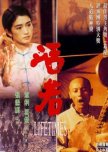
This review may contain spoilers
"...and life will get better and better..."
To Live aka Lifetimes put Zhang Yi Mou and Gong Li in the penalty box for two years due to what was considered a critical view of some of the Chinese government's policies. The film followed a family from the Civil War in the 1940's into the Cultural Revolution. The little family chose to adapt and to do what was necessary to live as the volatile political climate changed around them.Xu Fu Gui (Ge You) was an inveterate gambler married to Jia Zhen (Gong Li) with a young daughter and a baby on the way. His gambling caused him to lose the family mansion and his wife. Fu Gui lived in dire poverty with his mother as he attempted to sell thread and needles on the street. Jia Zhen came back to him with his daughter, now a mute due to a fever, and a baby boy when she heard he'd stopped gambling. Gifted a box with an elaborate shadow puppet set by the same man who maneuvered him into his losses, Fu Gui created a traveling troupe and took his show on the road.
While on the road, Fu Gui and his friend Chun Sheng become conscripted into the Nationalist army where they pull canons and entertain the troops with their shadow puppet show. The Red army overruns the Nationalist army and they end up doing the same thing for the other side. Fu Gui is finally able to go home and he finds a very different environment. His wife and kids are selling and delivering drinking water. Nui, a local communist leader oversees their neighborhood. Long Er, the man who ended up with their mansion was executed for being a counterrevolutionary after burning the house when the government tried to confiscate it. Fu Gui declares it's good they are poor and that he'd lost their house or he would have been the one executed.
The 1950's arrive and during the Great Leap Forward everyone is required to "donate" all of the iron items they own leaving them without cooking utensils. As Nui states, "We're racing toward communism and you're worried about food?" You Qing, their son, fights back against his sister's bullies and the family is almost labeled saboteurs. The next morning, after very little sleep he and all of the other young school boys are required to smelt iron. His mother tries to keep him home but Fu Gui is afraid of the repercussions if the child doesn't go. Tragedy strikes and an old family friend is reminded that he owes them a life.
The 1960's bring the Cultural Revolution. Fu Gui is ordered to burn his shadow puppets or risk being declared a capitalist. The neighborhood and homes are covered in Mao propaganda and images. Their daughter Feng Xia is wed to a lame Red Guard leader at a factory. When the time comes for her to birth their child, her parents discover that all of the doctors and medical professors have been imprisoned for being reactionaries with only young student zealots left. Feng Xia's husband brings an imprisoned doctor to help, but he's starving and of no use.
Some of the family's own choices led to their suffering as in Fu Gui's disastrous gambling habit. But the political situations had more than their share of tragic effects on the family. The lack of sleep so many suffered from caused a death. Locking away doctors and intellectuals left people vulnerable to unskilled students. With only one party, corruption or paranoia could lead to innocent people being arrested as capitalists, especially when no dissenting opinions were allowed.
Fu Gui's shadow puppets became symbols for part of the story's theme. Initially, they were used only for entertainment with the artistic freedom to make the show lewd or comical. Later the puppets told more propagandistic stories. Eventually, Fu Gui was forced to burn them lest their feudal and subversive nature land him in prison. His family became part of the neighborhood theater instead. When Feng Xia married, the song sung, toasts given, pictures taken, and even the presents all revolved around Mao. They didn't even have the freedom to say, "thanks, that's just what we needed, another Mao statue/picture/mural/book" as they glance over at the table and walls filled with them. The family never complained as the political landscapes changed, they merely dressed the part and endeavored to recite the party lines whatever they were. Only at You Qing's grave did the family crack, removing their masks and let loose their true feelings toward the governmental perpetrator.
The performances were phenomenal. Ge You gave an outstanding performance as the complex Fu Gui. He won a Best Actor award at the Cannes Film Festival. The film also won the Grand Prix award. Gong Li's part was smaller as the wife and mother, but her performance was powerful and compelling. Her tears, dignity, and rage pulled me in and never seemed contrived.
To Live showed how people adapt and survive even in tumultuous and dangerous times. The family conformed and persevered clinging to each other in order to live. Once he kicked his gambling habit Fu Gui realized why he wanted to live---his family. "There's nothing like family." Despite tragedies, Jia Zhen only desired "…a quiet life together" and repeatedly and doggedly chose to live. Together they weathered the political changes that created financial and social upheavals in their lives, never letting hope completely die. As Fu Gui declared to his grandson, "life will get better and better" without any evidence that it would yet he still chose to live in expectancy. To Live used the political changes as a structure to show how people are able to endure and to live with dignity even when the world tumbles around them. Zhang Yi Mou made a beautiful film about the tenacity of the human spirit and one well worth trying.
6/9/23
Was this review helpful to you?

 35
35 111
111 7
7





















